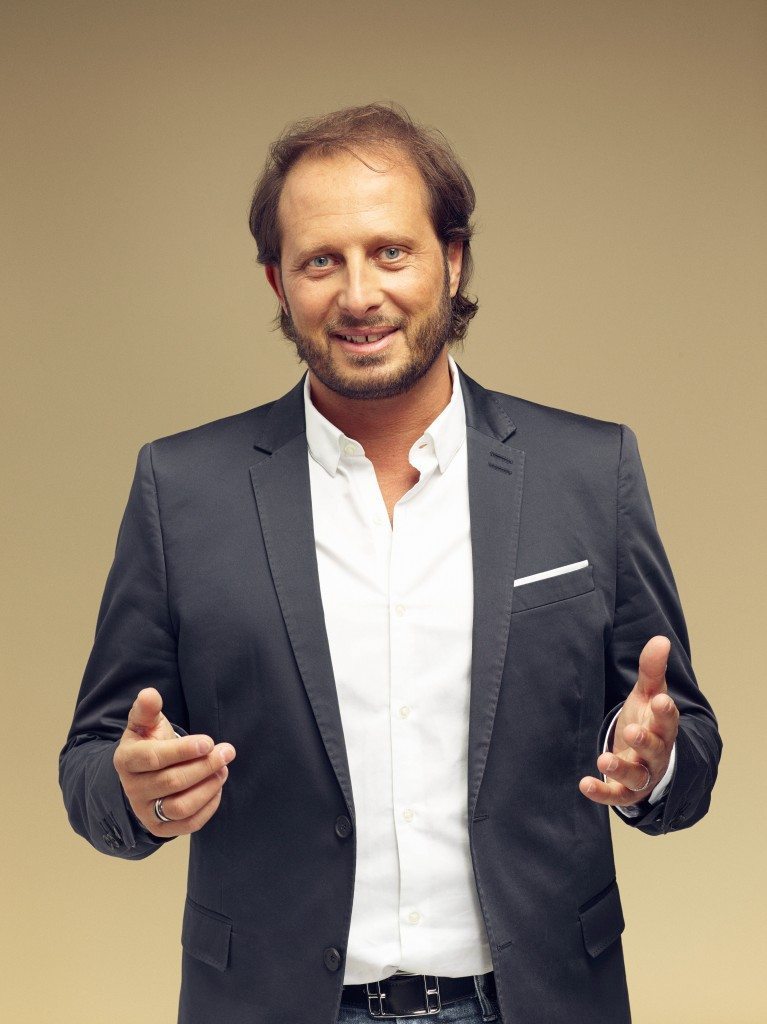diptyque questionnaire: Fabrice Pellegrin
09.14.2015The diptyque questionnaire was based on the one completed by Marcel Proust which had become popular and out of the 34 questions, the diptyque partner answering them will choose which they wish to share on memento.
Fabrice Pellegrin is a perfume writer. Born in Grasse and being the son of a perfumer, he comes from the world of scents and he chose this fascinating and demanding profession just after getting his bachelor’s degree. His tastes run into natural raw materials and he has a preference for perfumes with an oriental persuasion. His focus is on composing scents with a clear formula, well-structured, developing neat spaced and timed layers. As a perfumer at Firmenich, he considers that dialogue and understanding the stories of his conversationalist are an integral part of his trade.
2. What period of human history – a “distant country” wrote Racine – would you like to visit as an invisible tourist?
What triggers my curiosity is any period in history when mutation occurs. Can you imagine discoverers such as Copernic, Christopher Colombus….Among other mutations are the Renaissance, the Enlightenment in the 18th….
3. Your favorite dish?
Garden tomato with a leaf of basil and a dash of olive oil
4. Your favorite scent?
The jasmine of Grasse in August.
5. Your Proust madeleine?
On my way to school back then when I was a child, I used to walk past the factory of Roure, which make the distillations of patchouli oil and of moss. Since then, these scents bring back the carefreeness and the delights of my youth.
7. In your opinion, which animal creates the most empathy?
We all are mammals… You !!!!!
9. What fault do you have?
Discretion.
10. And which characteristic do you gain most from?
Humility.
12. What are you thinking about?
My nose thinks for me.
14. The book that opened your eyes to the world?
La peau de chagrin of Honoré de Balzac.
17. In your view, which painting – or painter – best captures scents?
Giuseppe Arcimboldo.
18. If you were to have a museum, which sculptor and sculpture would you choose for it?
Sculptors who dedicate their work to beauty and harmony, be it human or animal. All of these sculptures that festoon palaces, in Greece or in Italy.
19. Which famous or unknown contemporaries do you believe make the world a better place?
Pierre Rabi for his spectacular rise as an isolated man, and among all the unknown people, all the men who work earth without destroying it.
21. What question would you like to be asked?
I would like to hear you say: ”why do we always have to wait for answers instead of taking the time to meditate the questions?
And would you share the answer?
Yes, when I got the answer…
24. Where do you escape to? What landscape makes you want to escape?
Natural landscape without any human presence, because the eye is a wonderful shuttle to move throughout time.
26. Do you have a motto that you use as guidance and illumination?
One should always target the moon. And if you fail to reach it, you’ll still be staying among the stars.
27. Does the act of creating govern your life?
I do not claim to be creating anything. However, I consider myself as an inventor of scents.
Je n’ai pas la prétention de créer quoique ce soit, en revanche je me considère comme un inventeur d’odeurs.
28. As a gift what would you like to give that would make something?
Familly time.
29. If you were to talk about your job to young talented people, what would you say as encouragement?
To observe. Patience. To learn. Humility.
30. According to you, what is craftwork in modern times?
The meeting of a man or a woman of a vision, of a passion for a matter, and who comes to a transformation that does not hurt nature.
33. And what would your favourite diptyque scent (perfume or candles) be?
Perfumes:
Eau Duelle
L’Ombre dans l’Eau
Candles:
Hazel wood
Musk
Vanilla
34. For you, diptyque in a nutshell?
Genuine throughout is history.
Elegant in the way diptyque conceives its Image.
Humane in the manner projects are carried out.
Leaving autonomy and freedom in the creative process.
Being patient and unencumbered, maintaining a pace that connects us to nature whilst the industrial process is in a frenetic urge.


